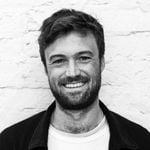Said Atabekov was born in 1965 in a Bes Terek village in Uzbekistan. One of the most important artists in Central Asia, he began his artistic activity in 1993 as a member of the Red Tractor Group, the rst avant-garde art collective founded in southern Kazakhstan after the Perestroika. A witness to successive waves of social and political change in an area which is a battleground for at least four strong ideologies – nomadic pantheism, Islam, Communism, and Western capitalism – Atabekov explores the intersections and local impact of often con icting cultures, skillfully identifying and animating elements that reveal their deeper paradoxes.
Read MoreLike many of today's artists, Atabekov's work spans a variety of media, from video and photography to sculptures and installations. His linguistic mix of ethnographic signs is heavily in uenced by recollections of the Russian avant-garde and post-Soviet global interventions, along with an intimate and often touching analysis of his condition as a contemporary artist. His practice, though deeply rooted in a particular culture and geography, is yet very much part of the global art community at large. While acutely aware of the attractiveness of the exoticism associated with the iconographical stereotypes of Central Asian art, he often refers to them ironically, mixing them with elements of shamanic, nomadic, or Su creativity in his projects.
Atabekov has participated in several international exhibi t ions and biennales, including: Prague Quadriennale, Czech Republic (2003); Istanbul Biennial, Turkey (2005); Media Art Biennale, Free Waves, Los Angeles, California (2006); La Biennale de Montreal, Canada (2007), Photoquai Biennale, Paris, France (2009) ; 4.Fotofestival Mannheim, Ludwigshafen Heidelberg, Germany (2011); Ostalgia, New Museum, New York, (2011); Central Asia Pavillion at the Venice Biennale, Italy (2005, 2007, and 2011); Migrasophia, Maraya Art Center, Sharjah, UAE (2012).



